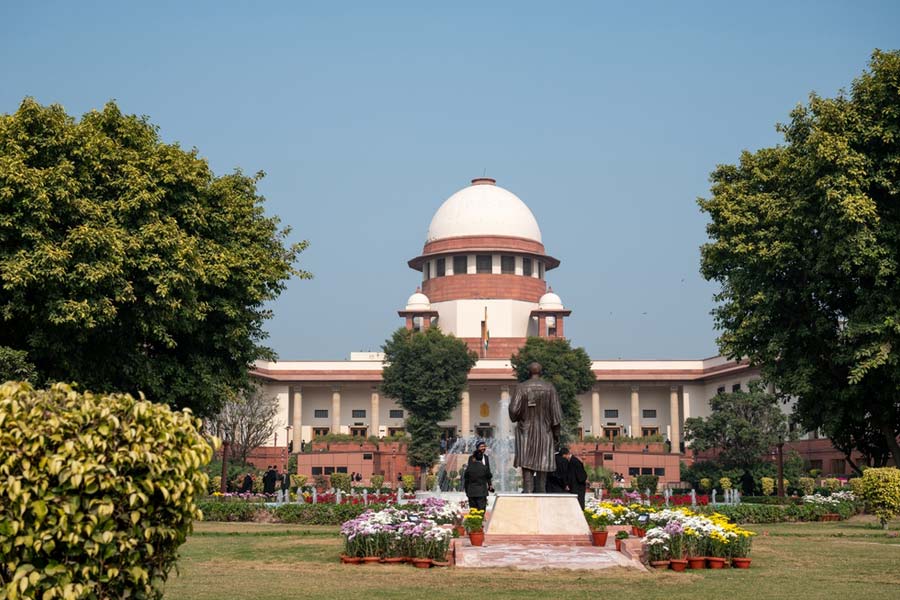The Supreme Court has ruled that calling a person “Pakistani” or “miyan-tiyan” does not amount to hurting religious sentiments although “undoubtedly” such statements are in “bad taste”.
The court quashed the criminal case against Hari Nandan Singh, 80, who had used such words during an argument with a government employee in Jharkhand.
“...The appellant is accused of hurting the religious feelings of the informant by calling him ‘miyan-tiyan’ and ‘Pakistani’. Undoubtedly, the statements are in poor taste. However, it does not amount to hurting the religious sentiments of the informant. Hence, we are of the opinion that the appellant shall also be discharged under IPC Section 298 (which makes it illegal to intentionally insult someone’s religious feelings),” a bench of Justices B.V. Nagarathna and Satish Chandra Sharma said in a recent order.
The name of the complainant is not mentioned in the judgment.
The court also did not find Singh guilty of the charge of assault or use of criminal force against a public servant. “Evidently, there was no assault or use of force by the appellant to attract Section 353,” it said.
“Additionally, we find that the appellant cannot be charged under IPC Section 504 as there was no act on his part that could have provoked a breach of peace,” the
court added.
Singh had approached the Supreme Court challenging the refusal of a sessions court and Jharkhand High Court to quash the criminal cases registered against him by the government employee.
“We set aside the order of the high court which has sustained the order of the trial court and, consequently, allow the application filed by the appellant herein and discharge the appellant from all the three offences alleged against him,” the apex court said.
The complainant, posted as an Urdu translator and acting clerk (right to information) in the sub-divisional office at Chas in Bokaro, had alleged that Singh had assaulted and insulted him when he went to his house to deliver a copy of the reply to an RTI query. The complainant alleged that instead of accepting the reply, Singh abused him and misbehaved with him, forcing him to lodge an FIR. The FIR was registered at the Bokaro Sector-IV police station.
Allowing Singh’s appeal, the apex court said: “We do not find that any ingredients of the offences alleged against the appellant herein find place in the FIR registered
against him.”
Justice Nagarathna, who authored the judgment, cited the top court ruling in the Sajjan Kumar vs CBI case of 2010 wherein it was held that while dealing with criminal cases, the trial court “cannot act merely as a post office or a mouthpiece of the prosecution but has to consider the broad probabilities of the case, the total effect of the evidence and the documents produced before the court”.










